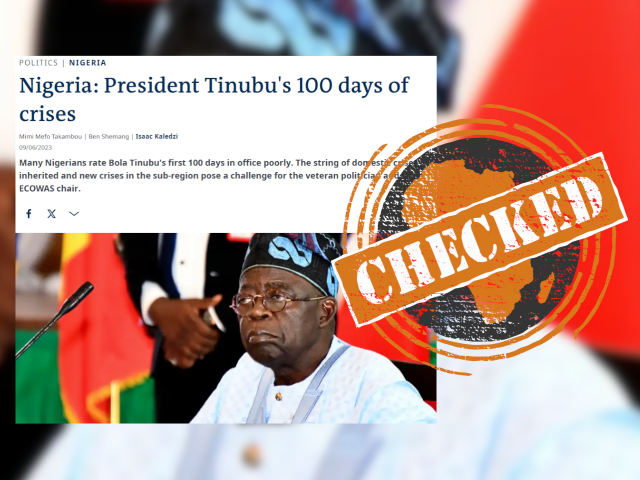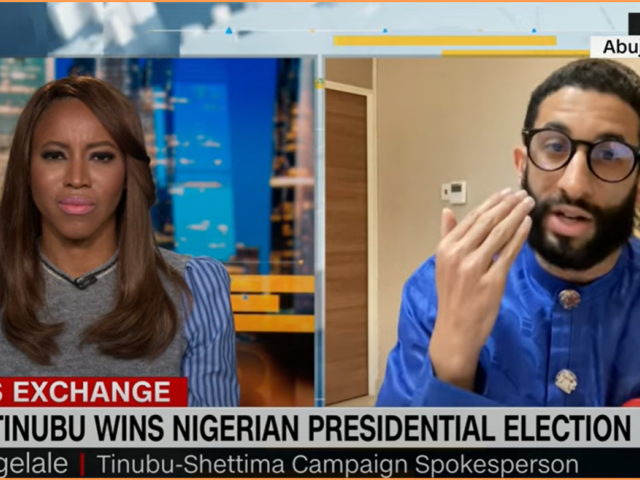IN SHORT: Facebook users claim that judge Haruna Tsammani said president Bola Tinubu should be forgiven in connection with a decades-old drug case in the US. But there’s no evidence that the judge at the Presidential Election Petition Court made such a remark.
Posts circulating on Facebook claim that judge Haruna Tsammani has asked Nigerians to forgive president Bola Tinubu for his alleged drug crime.
A 8 September 2023 post features the judge’s photo and a quote that reads: “Since Jesus can forgive and forget why can’t you forgive Tinubu’s drug crime.”
Tsammani is a judge at Nigeria’s Presidential Election Petition Court (PEPC). He led the panel that heard the petition filed by opposition leaders, challenging Tinubu’s victory in the February 2023 presidential elections. On 6 September, the court upheld the election of Tinubu as president.
The drug case referred to is likely a 1993 matter that saw Tinubu forfeit US$460,000 to the US government. It’s alleged he was involved in money laundering and drug trafficking, but he was never convicted on drug trafficking related charges in the US.
The opposition leaders who challenged Tinubu’s February 2023 win brought up the drug case, saying Tinubu should not have contested the presidential election.
The same quote has been attributed to Tsammani here, here, here, here, here, here, and here.
But did Tsammani ask Nigerians to forgive Tinubu for his “drug crime”? We checked.

No evidence judge made comment
Such a quote would show the judiciary was not impartial or independent. But Africa Check found no reports by credible media agencies that Tsammani made this comment or anything like it. If he had, it would have made headlines.
There is also no comment like this in the final ruling of the presidential tribunal headed by Tsammani.
The Facebook post does not mention when or where the judge might have made the comment. This lack of detail also raises suspicion.
There is no indication Tsammani has asked Nigerians to “forgive” the president.
Republish our content for free
For publishers: what to do if your post is rated false
A fact-checker has rated your Facebook or Instagram post as “false”, “altered”, “partly false” or “missing context”. This could have serious consequences. What do you do?
Click on our guide for the steps you should follow.
Publishers guideAfrica Check teams up with Facebook
Africa Check is a partner in Meta's third-party fact-checking programme to help stop the spread of false information on social media.
The content we rate as “false” will be downgraded on Facebook and Instagram. This means fewer people will see it.
You can also help identify false information on Facebook. This guide explains how.




Add new comment